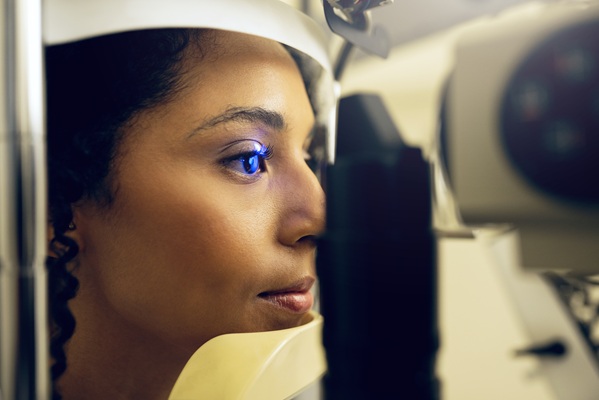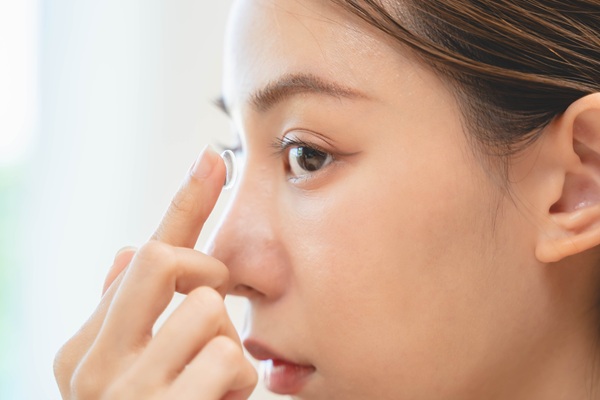Differences in Optometry and Ophthalmology

Optometry can help if you need to get your eyes checked or receive treatment for an eye condition. However, you are unsure if you need to make an optometry or ophthalmology appointment. The two are quite different, and going to the right eye doctor is critical for your eye health. Go over the differences between these two eye doctors. Then, you will be ready to make your optometry or ophthalmology appointment.
Optometry versus ophthalmology
Both optometrists and ophthalmologists are trained to care for the eyes. The training and the services offered are different, though. Learn more about optometry and ophthalmology. Discover what each eye doctor offers for patients.
What is an optometrist?
To become optometrists, people must complete the Doctor of Optometry degree. After receiving the degree, optometrists are tasked with providing patients with vision care. People go to optometrists for annual eye exams. Optometrists examine the eyes, looking for signs of refractive errors and health problems with the eyes. These exams include various tests to check the patient’s vision and look for eye diseases.
Optometrists are trained to treat vision issues such as farsightedness, nearsightedness, and astigmatism. They can prescribe contact lenses or glasses to treat these issues. Optometrists also look for disorders, injuries, and diseases that impact the eyes. This includes testing for glaucoma. Optometrists can also prescribe eye drops to treat glaucoma.
What is an ophthalmologist?
Ophthalmologists are Doctors of Osteopathic Medicine or medical doctors. These doctors focus on vision and eye care. Ophthalmologists can conduct eye exams. They provide prescriptions for glasses and contact lenses to treat refractive errors. Ophthalmologists also diagnose eye diseases and provide patients with surgical options.
Ophthalmologists can perform a variety of eye surgeries. People go to ophthalmologists to treat cataracts, glaucoma, and crossed eyes. Ophthalmologists can also provide plastic surgery. People with droopy eyelids often go to ophthalmologists to get this condition corrected. These doctors also perform surgery to treat eyelid skin cancer, eyelid spasms, and blocked tear ducts.
Some ophthalmologists provide a full range of services for patients. Others, on the other hand, focus on a specific discipline. Those who have a specific focus usually complete additional training in that area. For example, ophthalmologists can get additional training in glaucoma. These eye doctors only diagnose and treat glaucoma. In addition, they often receive referrals from optometrists with patients who require surgery.
Benefits of having a regular optometry appointment
A regular optometry appointment can help detect eye problems right away. Modern technology exposes people’s eyes to blue light. Exposing the eyes to this type of light can be harmful to a person’s eyesight and general health. Below are some of the benefits of having a regular optometry appointment:
- It recognizes the loss of vision right away. Many people suffer from poor vision. Bringing books too close to the face and having a large screen to view all the time makes poor vision unrecognizable. Failing to have an optometry appointment can result in risky activities every day. An optometrist will check the eyes and spot numerous problems. The optometry appointment will ensure the patient corrective glasses by the end of the checkup.
- It detects health problems early. The eye doctor can spot health issues early. This can help the patient take the necessary measures to get prompt treatment. It can also help prevent these diseases from worsening. An optometry checkup can detect arthritis, as well as high blood pressure, and a brain tumor. It can spot signs of eyelid skin cancer as well.
- It provides an early diagnosis of eye issues. Seeing an optometrist for regular checkups can provide a correct diagnosis. This will allow the person to get early treatments for the eye problem. Early treatment can prevent the eye problem from doing irreversible damage to the patient’s eyes.
- It helps provide regular eye treatments. Going to regular optometry treatments can prevent severe eye damage or at least slow down its progress. Regular eye treatments can improve one’s vision and lower one’s risk of having eye surgery.
Do you need an ophthalmologist or optometrist?
Optometrists and ophthalmologists both provide important services for patients. If you need an eye exam or want to check your overall eye health, schedule an optometry appointment. The optometrist can provide you with contact lenses or glasses and also look for issues with your eyes, such as glaucoma. However, if you have a serious eye condition or need eye surgery, you will need to go to an ophthalmologist. You can choose an ophthalmologist who has the training to address the issue you have or you can go to a general ophthalmologist.
Get more information here: https://www.texasoptical.net or call Texas Optical at (214) 771-7333
Check out what others are saying about our services on Yelp: Read our Yelp reviews.
Recent Posts
For those living with diabetes, undergoing a diabetic eye exam is one of the most important steps in protecting their vision and overall eye health. High blood sugar levels can lead to a range of complications, including conditions that damage the eyes over time. These exams help detect these issues before they become serious, allowing…
Contact lenses provide clear vision and convenience for individuals who prefer an alternative to eyeglasses. However, proper care and maintenance are essential to prevent infections, irritation, and eye damage. Neglecting hygiene practices can lead to serious eye conditions, including corneal ulcers and keratitis. Understanding how to clean, store, and handle contact lenses ensures long-term eye…
Maintaining eye health and preventing long-term issues is the result of consistent and quality vision care. Many people focus on overall wellness but may overlook daily habits that support healthy eyesight. However, taking simple steps each day can protect vision, reduce eye strain, and prevent future complications. By making eye health a priority, it is…
Prescription contacts provide vision correction, comfort, and convenience for those who do not want to wear glasses. However, caring for and wearing contacts takes some getting used to. Learning to insert, remove, and maintain them will help ensure a comfortable and safe experience.Not all contact lenses are the same, and choosing the right pair is…


